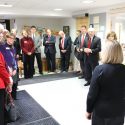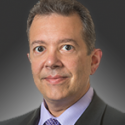Q&A with Vice Chancellor for Research and Graduate Education Marsha Mailick
Marsha Mailick has been selected as the first Vice Chancellor for Research and Graduate Education at UW–Madison, after filling in as interim vice chancellor since Sept. 1, 2014. The position was created after the Faculty Senate voted to restructure the Graduate School, splitting the university research enterprise into the Graduate School and the Office of the Vice Chancellor for Research and Graduate Education.
The office oversees the university’s more than $1 billion annual research expenditures, 17 research and service centers and the Graduate School.
Mailick, once director of the Waisman Center at UW–Madison, has many responsibilities — particularly in light of a waning supply of research funds and the increasing complexity of research administration. Here, she talks about the challenges and opportunities the research enterprise faces during this time of transition and budgetary uncertainty.
Q. What do you see as the biggest challenges coming down the track for our research enterprise?
A. The biggest challenges facing our research enterprise now are the constraints on federal funding for research and graduate education and the state budget as it affects the morale and productivity of our faculty and staff. There is no shortage of important unanswered research questions and the challenge we face is the need for adequate funding for research and scholarship as well as for the faculty, staff, and students who carry it out.
That said, let me emphasize that research funding isn’t the most important metric. We must never lose sight of the fact that scholarship and creating new knowledge are paramount.
Q. The biggest opportunities?
A. This is a time of organizational change. We are developing a distinct Graduate School with strong integrative links to the research enterprise. I see this as an opportunity for enhancing graduate education. New opportunities come from diversifying and expanding our research funding. For example, we soon will have expanded funding from WARF to be used strategically for enhancing research and graduate education. Also, in this era of increased emphasis and openness to entrepreneurship, there are many new opportunities for everyone in our campus community to transform their research ideas into entrepreneurial ventures.
Q. What are the things at the top of your leadership agenda?
A. My top priorities are these:
- Advancing graduate education and reconceptualizing our approach to graduate student funding. This includes working toward providing guaranteed multi-year funding packages for all doctoral students.
- Expanding our research funding from federal and non-federal sources, including increasing our share of industry funding. A key priority is to use a new seed funding program that we are developing to leverage new federal funding for research.
- Creating a community of campus research resources with an inventory of all core resources at the UW–Madison. We need to facilitate increased access, and identify gaps in our research capacity. The goal would be to extract greater value from our current core resources and direct funding to filling the gaps and thus enhance our research infrastructure to make us even more competitive.
- Supporting entrepreneurship. This involves enhancing and coordinating the ever-expanding number of campus and related entities in the entrepreneurship ecosystem, including D2P.
Q. It promises to be a challenge, leading such a big and complicated research program during changing times. Are there significant changes you perceive on the horizon for our programs of research and graduate education?
A. Our leadership team in the VCRGE office has been working toward both continuity and change. We will continue our programs of allocation of research funding through the fall competition and other ongoing programs, and we will work strategically to leverage greater levels of external funding as a result of these allocations. We will continue our support of research across all four divisions, both on the level of the individual faculty member and we also will devote greater support to multi-investigator high-impact awards. I look forward to working with the permanent dean of the Graduate School to identify and implement changes in graduate education.
Q. How do you perceive the challenges and opportunities of our age affecting Wisconsin faculty and staff as they work to maintain and build on their own programs of research?
A. We need to work closely with the deans and department chairs to be aggressive and affirmative in our support for the recruitment and retention of faculty during this difficult funding climate. Our faculty and staff remain our greatest resource.
Q. Are there any structural or institutional challenges that need to be met to align our research and graduate education program with the realities of the world?
A. Two areas that potentially can be aligned more strategically are the research cores on campus and our research centers. By extracting more value in research core resources, and supporting new resources to fill gaps, we can be better aligned and positioned to expand the UW–Madison research portfolio. Regarding research centers, we are in the process of identifying and clarifying the criteria for campus-wide research centers, which bring together faculty and staff from multiple disciplines and that contribute significantly to the education of our graduate students. Finally, graduate education has always been and always will be at the heart of our research efforts. However, we need to provide broader training to graduate students to prepare them not only for academic careers but also for other ways to participate in a growing knowledge economy.
Q. Is there anything we haven’t asked that you think needs emphasis?
A. Despite the challenges, I feel that this is an exciting time to be in a leadership role at the UW–Madison. I know that I’m speaking for the entire VCRGE leadership team in saying that we feel a great debt of gratitude to the university, which has been the intellectually exciting context for our research and scholarship, and we look forward to meeting the challenges and enhancing opportunities for faculty, staff and students.


